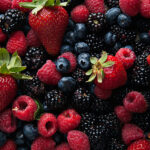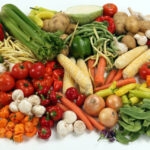SUGAR-SWEETENED BEVERAGES, ARTIFICIALLY SWEETENED BEVERAGES, FRUIT JUICE, AND CARDIOMETABOLIC HEALTH

Many studies have linked consumption of sugar-sweetened beverages (SSBs) with an increased risk of cardiometabolic disease. However, evidence for an association between cardiometabolic disease and consumption of alternative beverages including “artificially” (intensely) sweetened beverages (ASBs) and fruit juices, is mixed.
Recently, Li and colleagues (1) conducted a systematic review and meta-analysis of 72 prospective cohort studies looking at the association of SSBs, ASBs, and fruit juices with the risk of type 2 diabetes, hypertension, stroke, coronary heart disease, cardiovascular mortality and all-cause mortality.
While the researchers report in their abstract that they found many statistically significant positive associations between consumption of some of these beverages and several cardiometabolic risk factors, after controlling for important confounders (including age, smoking, alcohol drinking, body mass index, physical activity, family history or past history) many of these results were no longer statistically significant (2). Specifically, when all known confounders were controlled for, the following associations were found:
- For type 2 diabetes, a relative risk of 1.24 for SSBs (statistically significant), 1.17 for ASBs (statistically significant) and 0.98 for fruit juice (not statistically significant)
- For hypertension (high blood pressure), a relative risk of 1.15 for SSBs (statistically significant) and 1.11 for ASBs (statistically significant)
- For coronary heart disease, a relative risk of 1.16 for SSBs (statistically significant)
- For stroke, a relative risk of 1.06 for SSBs (not statistically significant)
- For cardiovascular disease mortality, a relative risk of 1.14 for SSBs (statistically significant) and 1.08 for ASBs (not statistically significant)
- For all-cause mortality, a relative risk of 1.12 for SSBs (statistically significant) and 1.05 for ASBs (not statistically significant)
It is important to note that for these types of observational studies, relative risks less than 0.83 or greater than 1.20 potentially indicate a strong causal relationship – if they are otherwise well-designed studies (3). Only the results for SSBs and risk of type 2 diabetes meet these criteria.
Finally, it’s worth pointing out that most of the studies included in this new systematic review and meta-analysis weren’t adjusted for (initial) body weight, which is a major determinant of beverage consumption: the more a person weighs, the more they need to drink (for more on this topic, see this month’s Perspectives). Heavier people also have a higher risk of cardiometabolic disease. Therefore, it is likely that the results reported in this new systematic review and meta-analysis on beverage consumption are confounded by this important factor.
More high-quality research is therefore needed to help us understand the relationship between sugar sweetened beverage, “artificially” sweetened beverage and fruit juice consumption and cardiometabolic health.
Read more:
- Li and colleagues. Consumption of sugar sweetened beverages, artificially sweetened beverages and fruit juices and risk of type 2 diabetes, hypertension, cardiovascular disease, and mortality: A meta-analysis. Front Nutr. 2023.
- Li and colleagues. Supplementary Material. Data Sheet 1.docx
- Mente and colleagues. A systematic review of the evidence supporting a causal link between dietary factors and coronary heart disease. Arch Intern Med. 2009

Dr Kate Marsh is an is an Advanced Accredited Practising Dietitian, Credentialled Diabetes Educator and health and medical writer with a particular interest in plant-based eating and the dietary management of diabetes and polycystic ovary syndrome (PCOS).
Contact: Via her website www.drkatemarsh.com.au

Dr Alan Barclay, PhD, is a consultant dietitian and chef with a particular interest in carbohydrates and diabetes. He is author of Reversing Diabetes (Murdoch Books), and co-author of 40 scientific publications, The Good Carbs Cookbook (Murdoch Books), Managing Type 2 Diabetes (Hachette Australia) and The Ultimate Guide to Sugars and Sweeteners (The Experiment Publishing).







